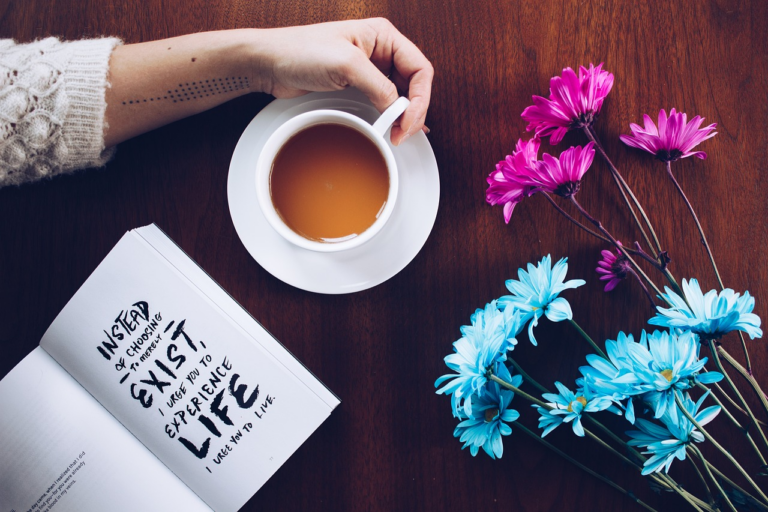
In today’s society, we are bombarded with messages that tell us that success and happiness are directly linked to our possessions and material wealth. However, minimalism offers an alternative perspective that challenges this notion.
Minimalism is a lifestyle that emphasizes the intentional reduction of possessions and focuses on the pursuit of a meaningful life. By clearing the clutter in our lives, we can gain a deeper understanding of what truly matters and find a sense of purpose and fulfillment.
The journey to minimalism can be a transformative experience that involves letting go of material possessions and embracing a simpler way of living. This can be a daunting task, as it requires a fundamental shift in the way we think about our possessions and our relationship with consumerism.
However, the benefits of minimalism are numerous, including increased clarity, improved mental health, and a greater sense of freedom. In this article, we will explore the impact of minimalism on our lives and how it can help us find meaning and purpose in an increasingly complex world.
Journey to Minimalism
The article’s discussion on minimalism is centered around the author’s journey, which was catalyzed by clearing his cluttered office desk and discovering a handwritten note from his father that motivated him to pursue meaningful pursuits.
Through this experience, the author discovered the benefits of minimalism, which goes beyond just decluttering physical possessions. It involves living intentionally and focusing on things that result in longer-lasting personal satisfaction rather than collecting material possessions.
In embracing minimalism, the author also emphasizes the importance of overcoming consumerism. Instead of constantly seeking fulfillment through material possessions, minimalism encourages individuals to pursue a more meaningful and satisfying life.
By living with less, individuals can focus on what truly matters and pursue their passions and goals, resulting in a more fulfilling and satisfying life.
Impact on Life
The positive impact of reducing material possessions and focusing on meaningful pursuits is evident in the author’s experience of rediscovering a handwritten note from his father, which motivated him to pursue a more intentional and purposeful life.
By decluttering his physical space, the author was able to declutter his mind and gain a newfound clarity and appreciation for what truly matters in life. This led to a more fulfilling and satisfying existence, as the author was able to focus on pursuing meaningful pursuits rather than being weighed down by material possessions.
To experience the benefits of minimalism, there are practical tips for decluttering that can be implemented. These include starting small, such as decluttering a single drawer or closet, and gradually working up to larger spaces. It’s also important to be intentional about what possessions are kept and to let go of items that no longer serve a purpose or bring joy.
Finally, embracing minimalism is about more than just decluttering physical possessions; it’s about adopting a new mindset and way of living that prioritizes meaningful pursuits and experiences over material possessions.
Pursuing What Matters
Embracing intentional living and prioritizing experiences over possessions can lead to a more fulfilling and satisfying existence. Pursuing what matters in life means letting go of materialism and understanding the importance of prioritizing values.
Physical possessions can be distracting and may hinder our ability to focus on the important aspects of life such as relationships, personal growth, and contributing to society.
By adopting a minimalist lifestyle, we can create a space for meaningful pursuits and experiences. It allows us to declutter our minds and focus on the present moment instead of worrying about accumulating more things.
Minimalism is not just about owning less, but also about valuing what truly matters in life and living intentionally. By prioritizing our values, we can lead a more fulfilling and satisfying life.
Frequently Asked Questions
What specific steps can one take to start embracing minimalism in their daily life?
Minimalism as a mindset involves intentional living, and prioritizing experiences over possessions. Tips for sustaining a minimalist lifestyle include decluttering regularly, tracking expenses, and setting boundaries on consumerism.
How can minimalism help improve mental health and overall well-being?
Minimalism can benefit mental health and overall well-being through self-discovery, reduced stress, increased focus, and improved decision-making. By prioritizing meaningful pursuits over material possessions, individuals can experience greater satisfaction and fulfillment in life.
Can minimalism have a positive impact on one’s relationships with others?
Implementing boundaries and owning less can have benefits for relationships. By reducing material distractions and focusing on meaningful pursuits, individuals can cultivate stronger connections with others and prioritize quality time together.
How can one balance minimalism with practicality in terms of necessary possessions for work or personal life?
Achieving a minimalist mindset involves identifying practical possessions necessary for work and personal life while eliminating excess. Through intentional decision-making and prioritizing meaningful pursuits, one can balance minimalism and practicality.
Are there any potential drawbacks or challenges to adopting a minimalist lifestyle?
Minimalism can bring social pressure and emotional attachment challenges. It may be difficult to maintain a minimalist lifestyle in a society that values material possessions, and letting go of sentimental items can be emotionally challenging.
Key Takeaways
Conclusion
The journey to minimalism can be transformative, both in terms of physical space and mental clarity. By clearing the clutter and focusing on what truly matters, we can find a deeper sense of purpose and meaning in our lives.
Minimalism is not just about getting rid of material possessions, but rather about simplifying our lives and making room for the things that truly matter. Research has shown that clutter can have a negative impact on our mental health and well-being.
A study conducted by UCLA found that people who lived in cluttered homes had higher levels of cortisol, a stress hormone, than those who lived in tidy homes. By reducing the amount of physical clutter in our lives, we can reduce feelings of stress and anxiety.
In conclusion, minimalism is not just a trend or a fad, but rather a way of life that can have a profound impact on our well-being. By focusing on what truly matters and clearing the clutter, we can find a deeper sense of purpose and meaning in our lives. As the famous Japanese proverb goes, “The things you own end up owning you.”Let us strive to live a life that is filled with purpose and meaning, rather than material possessions.





